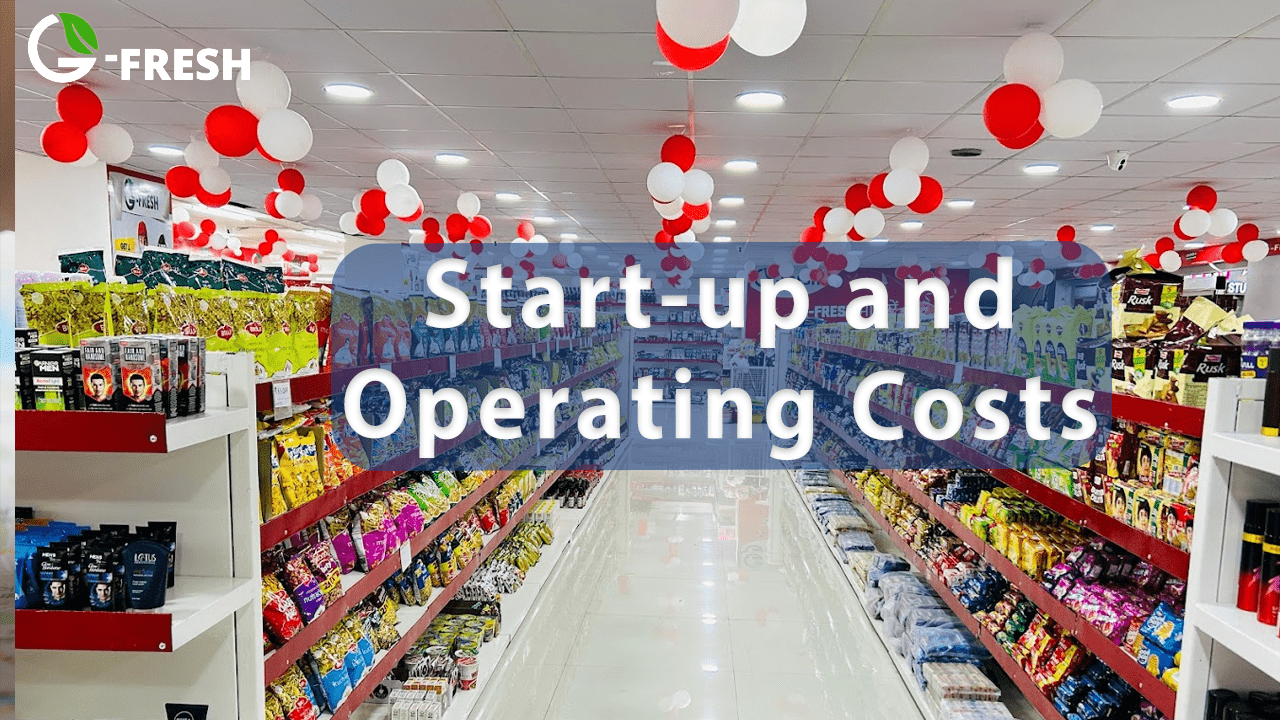What Should be Consider Before Buying a Supermarket Franchise ?
Buying A Supermarket Franchise
Owning a supermarket can be incredibly profitable, but at the same time, it has several serious (the same as above) risks and costs. Franchising is the best way to adopt a concept from an already well-known brand, which plays a role in some risk mitigation by ensuring a proven business model, brand recognition, and support of the franchisor. Although the supermarket franchise is a big investment, one should consider beforehand, that the individual has all the required information. In this article, we’ll tear down the factors you need to know by heart before buying a supermarket franchise near you in India.
Before Buying a Supermarket Franchise
- Industry and Market Analysis: While setting up one of the best supermarket franchises, it is of utmost importance to conduct a detailed study of the industry at large, as well as the market where you are planning to start your business. Some key considerations include:
- Market Saturation: Before buying a supermarket franchise, background the level of competition in your area of interest with a major consideration for the existing supermarket chains, independent grocers, warehouse clubs, superstores, and other food retailers. Competition in a market might be very intense if there are many entrants. This could make it difficult for a new entrant to gain grounds and own a reasonable market share.
- Consumer Trends: Strive to track the changes in the consumers’ tastes, buying behavior, and finally, the ongoing trends in the grocery business. An increasing desire to consume products like organic, local, specialty, or ready-made foods, however, could influence operations and condition the product line. Comprehending changing demographics and dietary likes and dislikes is also significant.
- Economic Conditions: Assess the economic outcomes of your local area such as population size, income degree, employment conditions and consumer spending behavior. An economy that is on the rise robustly and has the ability to provide good incomes and jobs can support a new venture easily, but a bad economy would result in severe challenges in getting the best supermarket franchise started.
- Demographic Analysis: Take a look at the socioeconomic characteristics of your prospective clientele, visitors that pertain to age, income level, family size, and cultural backgrounds. Such criteria can manipulate the selection of an item to work out the pricing strategy or the features/services that the customers may require.
Must Read: Complete Guide to Launch Grocery Franchise in India
Franchise Model and Fees
Each supermarket franchise business is quite distinct in the framework of the model that it uses and the fee system that is practiced. It’s essential to understand the specific terms and conditions of the franchise you’re considering:
- Initial Franchise Fee: The start-up cost has a wide range from several tens of thousands to several hundreds of thousands which cover the right to use the franchisor’s name, branding, marks, and business model.
- Royalty Fees: Many franchises use remaining royalty options when they collect a certain percentage from your gross sales (commonly 4-8%)—paid to the franchisor on a weekly or monthly basis.
- Advertising Fees: Besides the royalties, some royalty contracts may require licensors to contribute to a national or a regional advertising fund for the marketing of the brand. This normally is another percentage of the gross sales.
- Renewal Fees: The form of most franchise agreements is that they are called for renewal after a specified tenure (typically 5 to 20 years). Renewal fees, which in many cases comprise sizeable amounts.
- Other Potential Fees: Some franchisors may collect premiums on the above facilities like training, site selection help, usage of proprietary software or systems, auditing, insurance programs and so on. Before buying a supermarket franchise, one should check out the factors related to the additional fees in order to successfully transition.

Start-up and Operating Costs
Before buying a supermarket franchise, one needs to understand the stiff of the undertaking in monetary terms, which needs initial investment and running-identity costs. Some key expenses to consider include:
- Real Estate and Construction: Obtaining or leasing a commercially sized location of 30-60 thousand square feet and renovating or building the supermarket franchise can be one of the most expensive factors.
- Equipment and Inventory: Buying things like refrigeration units, freezers, checkout systems, shelving, and more fall under your equipment needs. Determination of initial inventory availability will also be a major expenditure.
- Staffing: Hiring and faculty training of a 50-200 people team comprised of managers, cashiers, stockers, and depending on the specialization (for example butchers, bakers or deli clerks) will require exceptional allocation of resources as well.
- Marketing and Promotions: Besides paying for advertising in the media, you’re gonna need some funds for local marketing, promotions, and loyalty schemes, just to attract new customers.
- Insurance, Permits, and Licenses: Supermarket franchises should have liability, property, workers’ compensation, food safety, and third-party insurance coverages. They also need health permits, licenses, and compliance with regulations.
- Working Capital: Working capital will be needed for operating expenses until the supermarket franchise becomes profitable, this could take months or even years.
- Technology: Modern tech such as inventory management, self-checkout, and online ordering, among other systems, have become a necessity for supermarkets.
Work out all the expenditures including leasing rental, bills, taxes and so on and have enough capital through investments, loan, or any other kind of financing to meet your expenses. Among franchise owners most of them expect their clients to meet a certain net worth and liquid capital requirements.

Franchisor Support and Training
One of the main advantages of franchising is the upshot and training that the franchisor imparts. On the flip side, before buying a supermarket franchise, the extent of this backing and the quality level of support should be significantly checked among different franchises. Evaluate the following aspects:
- Initial and Ongoing Training: Get acquainted with the deepness, the comprehensive nature, as well as the format of the training (classroom, online, on-location, etc.) at the initial phase of implementation ( while introducing new concepts or refreshing the acquired skills).
- Operations Manuals and Systems: Assess the overall effectiveness of the franchisor’s operations manuals and systems, which should cover everything from actual site development to store setup and display, inventory management, food quality, good customer service, and more.
- Site Selection and Build-out Assistance: Some franchisors give trend-oriented tips on the cherry-picking of a site with the assessments of data like demographics, traffic patterns and competition. Some will be experts on arranging flow lines of an effective store, while others will be the professionals doing the construction.
- Supply Chain and Distribution: Monitor the franchise for offer of the unfeigned supply chain and distribution system for acquiring of qualify pricing on inventory at a decent price. Or if you are going to buy products and materials from a domestic markets supplier.
- Marketing and Branding Support: Reflect whether the supermarket franchise owner near you offers branding, advertising creativity, promotional strategy and the necessary marketing support resources, beyond just providing the required ad fund payments.
- Ongoing Support and Communication: Before buying a supermarket franchise, find out what sort of both the field and corporate support is going to be given by franchisor e.g. visits from the representatives, access to helplines or online resources of the franchisee, annual conferences or communication channels for the exchange of expertise of the problem solving.
- Technology and Data Systems: Fast food shops in front of modern markets have to give their customers good technology for simple tasks such as ordering, stock, location, loyalty programs, communication and storage of data. Ensure these systems are continuously up to date and well-supported.
- HR, Accounting and Back-Office Support: Many supermarket franchise owners in India put up operation methodologies and systems for workforce management, payment systems to handle payroll and book keeping and other administrative services.
The franchisor who chooses to build on his robust, continuing to better training and support systems across all operational areas can help the operator launch smoothly and be more experienced in subsequent operations. However, this kind of assistance most of the time attracts additional charges.
Must Read: 7 things you must consider before buying a supermarket franchise
Legality and Financial Perfection
- Before buying a supermarket franchise in India, it’s essential to conduct thorough legal and financial due diligence to fully understand what you’re committing to:
- Review the Franchise Disclosure Document (FDD): This is a crucial document, which must be filed in the concerned authorities, and it contains comprehensive information on the franchisor, franchised system, franchise costs, obligations, the types of litigation and the potential risks. Spend the time and money to have the Franchise Agreement carefully reviewed assisted by a qualified franchise lawyer.
- Validate Financial Performance Representations: If the franchisor shows financial performance representations (e.g. average sales, costs, profitability, etc.), these figures must be checked and known which assumptions and conditions they were calculated under. Blend your own numbers with projections that usually seem too good.
- Speak with Current and Former Franchisees: Making contact with existing and ex-franchisees for first-hand views and observations of their relationships with the franchisor, including levels of support, any issues, profitability, confirmation of performance figures etc., would be a part of the due diligence process. Before buying a supermarket franchise, do your best to get an honest picture which is wider than the information the franchisor officially offers you.
- Assess Brand Strength and Growth Potential: Assess the franchisor’s corporate brand strength, competitive position, expansion track and prospective profitability. This will help determine if the system has a good chance of survival for the future.
Elevate Your Earnings with Franchise Investment Today
Investing in a supermarket franchise can be a very pleasurable and profitable undertaking, but it can also be rather risky undertaking with a lot of responsibilities attached to it. With studied assessment of factors like market conditions, franchise fees, and cost, franchisor support, legal and financial due diligence, and personal interests, you can make a sound decision that is in line with your goals and needs.
Keep in mind that franchising is a long-term commitment, therefore, before buying a supermarket franchise, the decision needs to be made carefully, knowing all the pros and cons involved.
